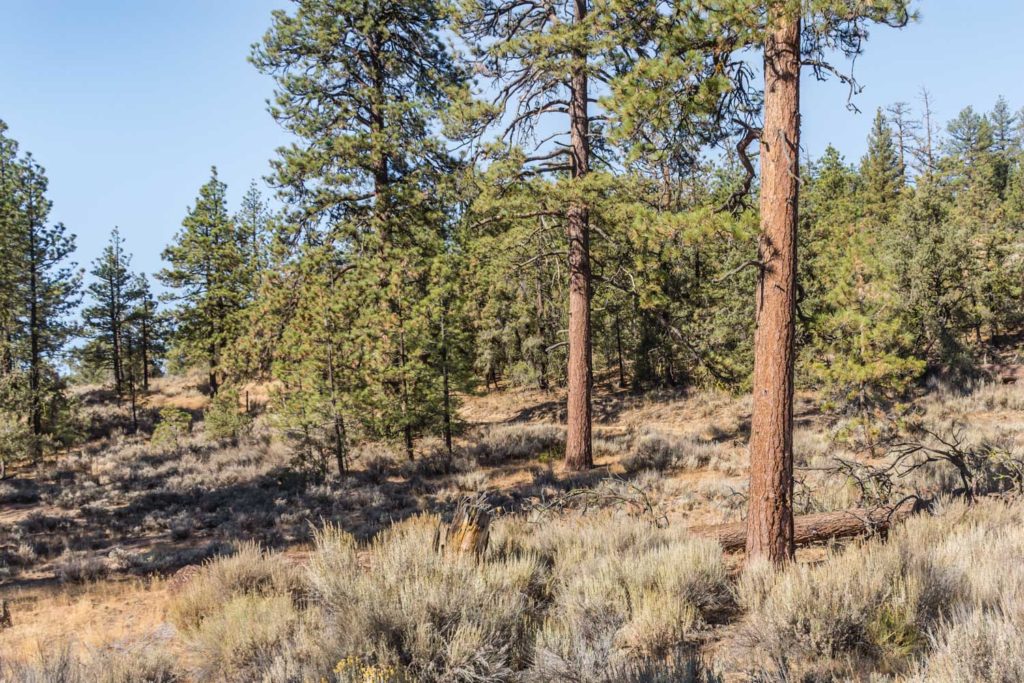
LOS ANGELES ― Conservation groups sued the Trump administration today to halt a logging project in a roadless area of Los Padres National Forest that would destroy prime habitat for endangered California condors. Because of the project’s remote location, it also would fail to protect communities from wildfires as federal officials have claimed.
Today’s lawsuit, filed in U.S. District Court in Los Angeles, says the U.S. Forest Service violated federal law by approving the removal of large-diameter trees along 12 miles of Tecuya Ridge in the San Emigdio Mountains, including in the rugged Antimony Roadless Area. Under federal law, logging in roadless areas is limited to smaller trees.
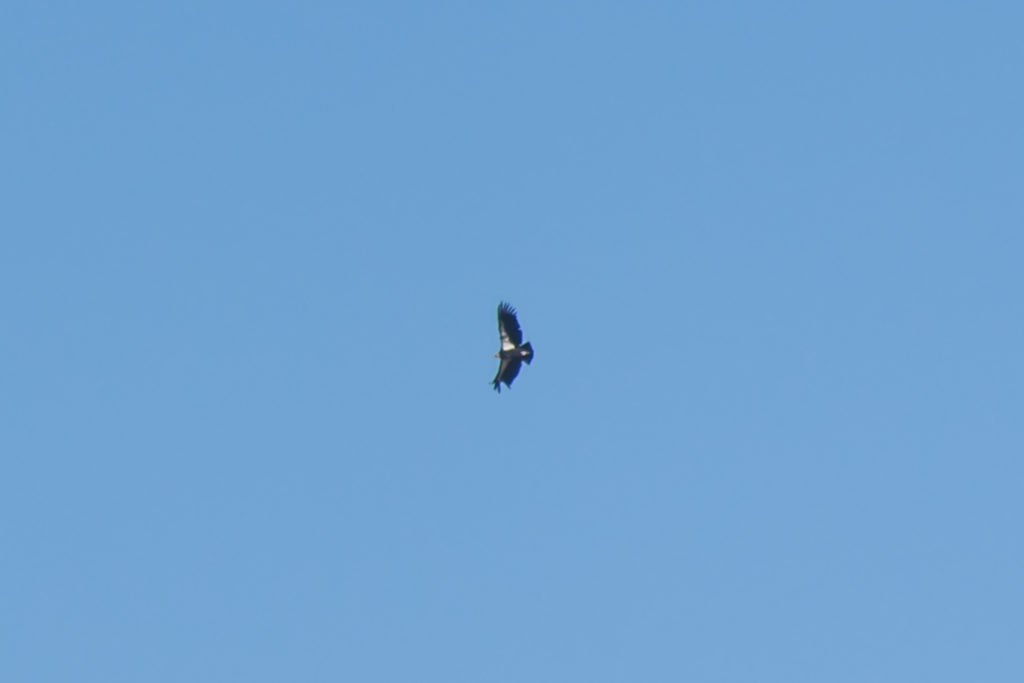
“There is simply no place for commercial logging in California condor country,” said Bryant Baker, conservation director for Los Padres ForestWatch. “It’s highly concerning that the Forest Service would push this project through without a full environmental review and in spite of widespread opposition from local communities.”
The Forest Service approved the Tecuya Ridge project in April after excluding it from environmental review under the National Environmental Policy Act. That limited public input and prevented consideration of alternatives, such as creating defensible space immediately adjacent to the communities at risk.
“Logging old-growth trees in remote forests will not protect homes from fire. In fact it’s a dangerous distraction,” said Chad Hanson of the John Muir Project of Earth Island Institute. “Instead we should focus our resources on helping people make their homes fire-safe.”
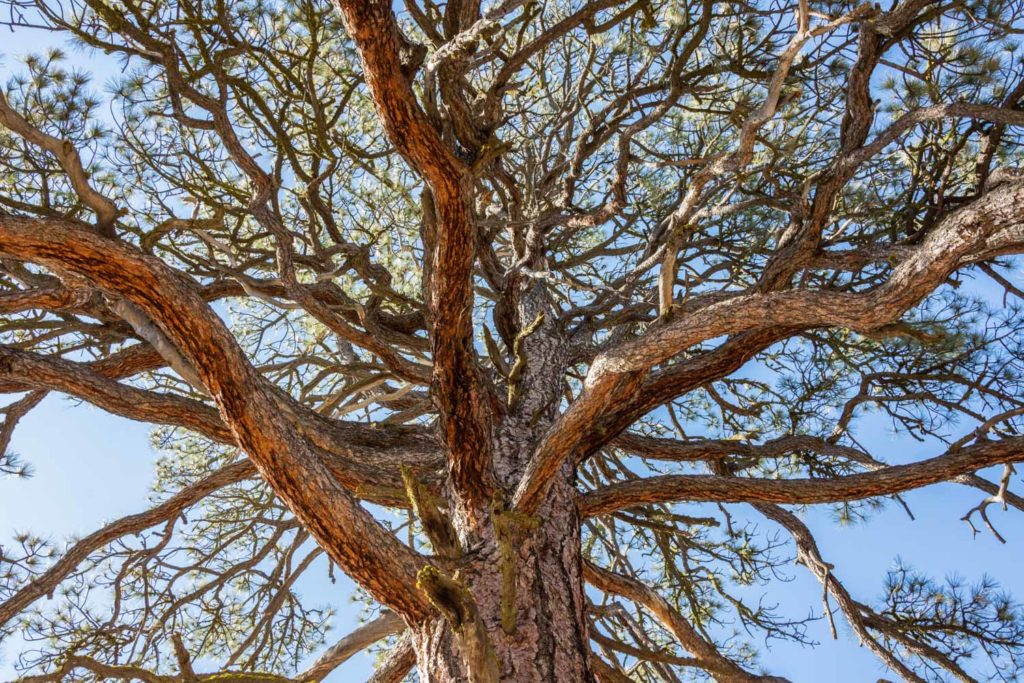
Studies have repeatedly shown the importance of retaining larger, fire-resistant trees to reduce the risk of high-intensity fire. The Forest Service has approved the removal of trees of all sizes throughout the project area.
Research also shows that community-focused fire-safe measures are more successful and cost-effective than removing trees and vegetation in the backcountry. Those measures include creating defensible space around properties, retrofitting homes with fire-safe materials, improving early warning and evacuation systems, creating fireproof community shelters and curbing new development in fire-prone areas.
“This destructive project will harm endangered condors by logging habitat that these magnificent raptors use for roosting,” said Justin Augustine, a senior attorney at the Center for Biological Diversity. “The Forest Service should be helping people make their properties fire safe instead of logging wildlife habitat in a beautiful national forest. The Trump administration recklessly OK’d a project that can actually increase fire threats by cutting big, flame-resistant trees.”
The logging area includes prime habitat for endangered California condors in mixed conifer and pinyon-juniper forest.
According to U.S. Fish and Wildlife Service condor tracking data, the project could harm more than 50 condor roost sites. These roost sites are typically large dead or live trees that are used by condors for resting overnight between long flights.
Federal standards require a minimum half-mile buffer from condor roosting sites to protect them from disturbances such as logging. The Forest Service has provided no protections for the roosting sites because it denies that they exist.
Local opposition to the project was substantial—98 percent of the comments submitted to the Forest Service were opposed to commercial logging in the area and the lack of environmental review. In June local community members submitted a petition with 275 signatures asking the Forest Service to stop the project.
Photos by Bryant Baker
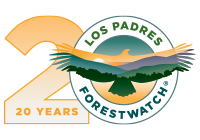
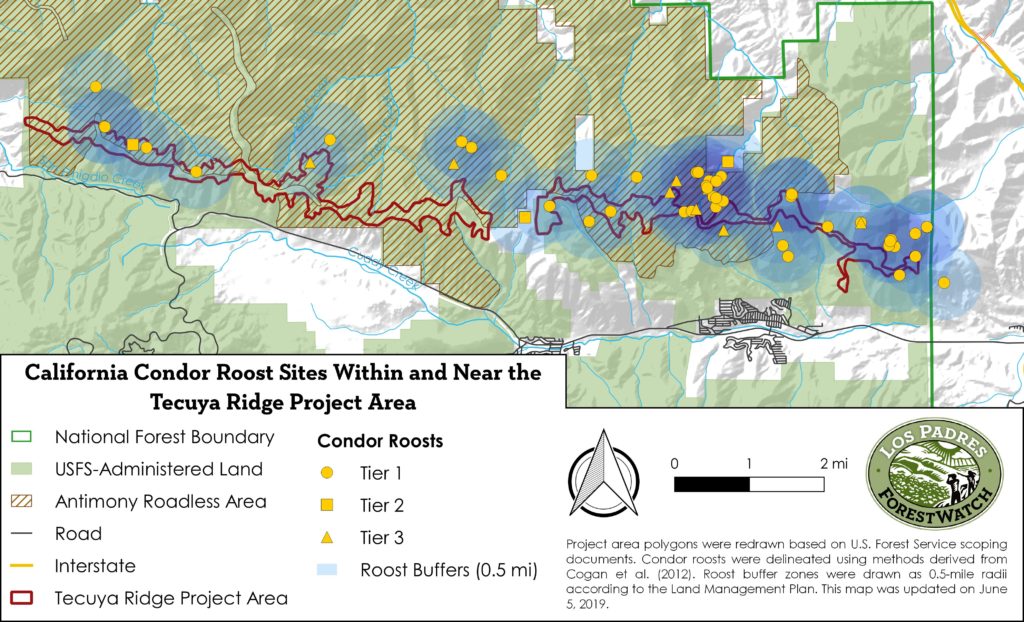





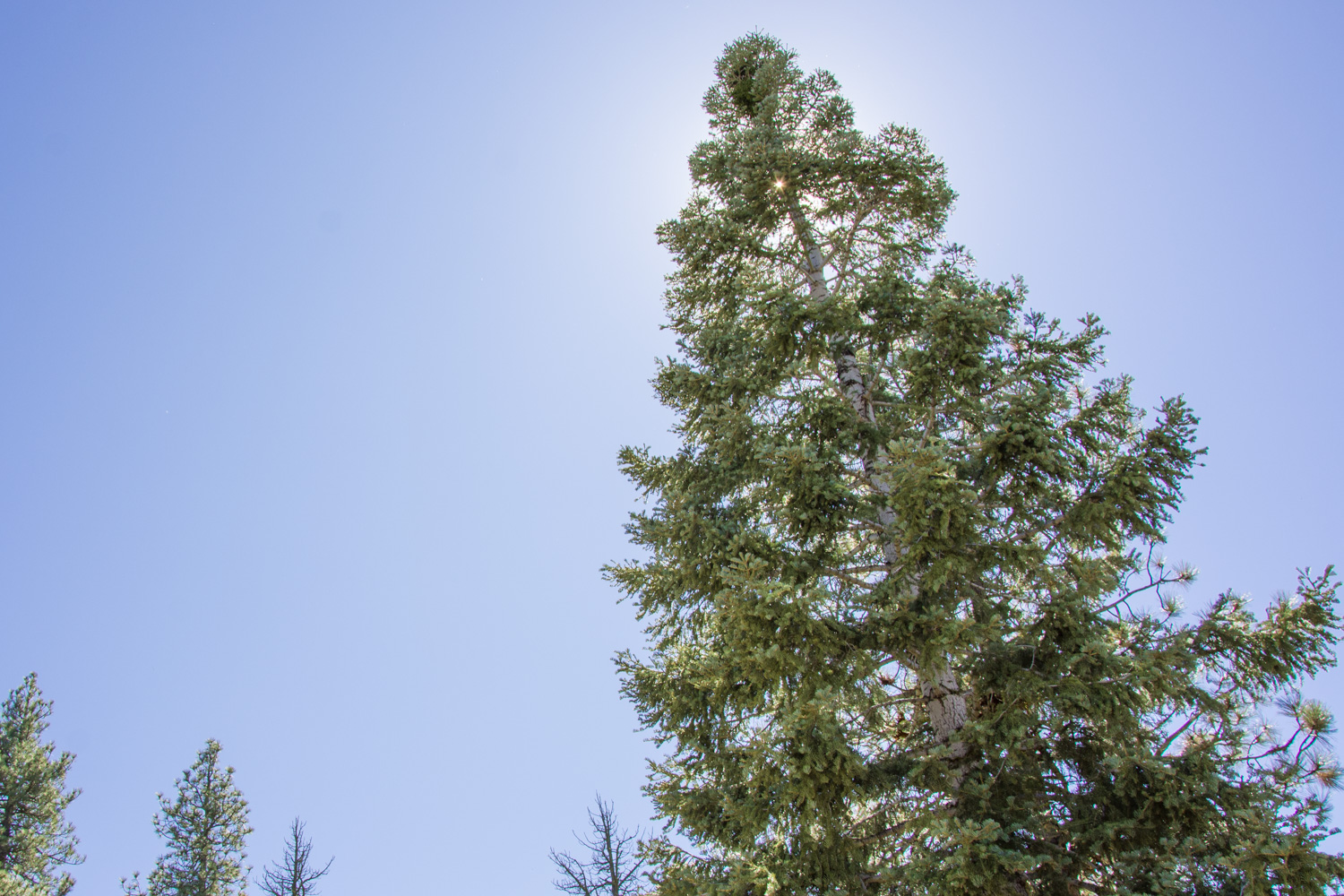
Comments are closed.